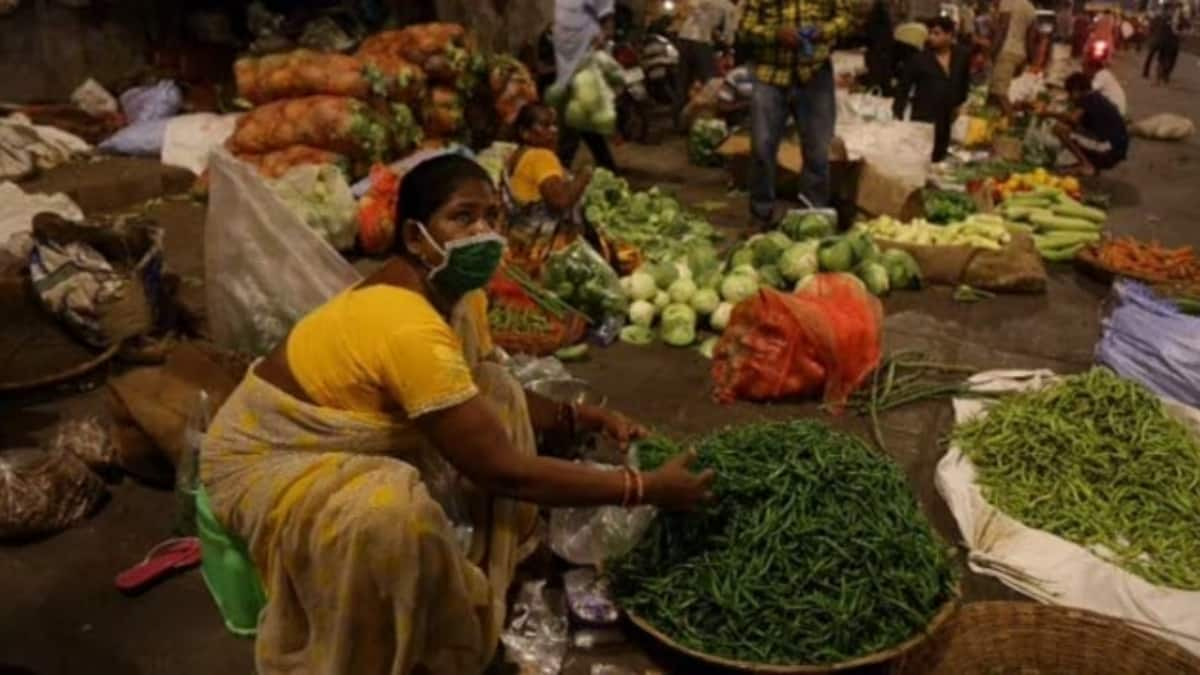Nov CPI inflation seen at 3-month high of 5.7%
Propelled by a surge in vegetable prices, India’s retail inflation, based on the Consumer Price Index (CPI), likely rose to a three-month high of 5.7% in November from 4.87% in October, according to a poll of 17 economists by FE.
In November 2022, the retail inflation was at 5.88%. The estimates in the poll, however, ranged widely from 5.30% to 6.92%. Core inflation, on the other hand, is expected to remain around the same level as in October, at around 4.2%.
“The key reason for the sharp rise in CPI inflation is the unseasonal surge in key vegetable prices,” said Abhishek Upadhyay, senior economist at ICICI Securities Primary Dealership while adding that there is, however, considerable uncertainty about the extent of the rise.
Data from the Department of Consumer Affairs showed that onion prices jumped 58.3% month-on-month in November and tomato prices soared by 34.7%. Potato prices were up 2.2% sequentially during the month.
Onion prices recorded a sharp spike in retail prices during November despite the arrival of fresh kharif crop in the market. In October, the inflation of onion stood at a 37-month high of 42.08% on account of the delay in the arrival of the crop, and decline in production in Maharashtra and Karnataka.
Cereal prices were also up sequentially, with the retail price of rice having risen 1.0% month-on-month, and that of wheat by 2.0% in November. Pulses price too rose 1.5% on month.
Last week, the Reserve Bank of India’s Monetary Policy Committee (MPC) noted that uncertainties in food prices along with unfavourable base effects are likely to lead to a pick-up in headline inflation in November-December.
The MPC suggested, “kharif harvest arrivals and progress in rabi sowing together with El Nino weather conditions need to be monitored. Adequate buffer stocks for cereals and a sharp moderation in international food prices, along with proactive supply side interventions by the government may keep these food price pressures under check.”
The RBI, however, kept its full year (FY24) and Q3 inflation forecasts unchanged at 5.4% and 5.6%, respectively.
Barclays expects core inflation to have risen marginally by 10 basis points to 4.3% in November. “Despite continued strength in domestic demand, core inflation has still remained under control; we think this may be due to either higher aggregate supply or the impact of supply shocks on the second-order effects on inflation (for example, recurring food price shocks can generalise to higher wages or transportation costs, or affect inflation expectations).”
The MPC in its statement mentioned that core disinflation has been steady, indicative of the impact of past monetary policy actions.
However, it said, “the path of disinflation needs to be sustained. The MPC will carefully monitor any signs of generalisation of food price pressures which can fritter away the gains in easing of core inflation.”



